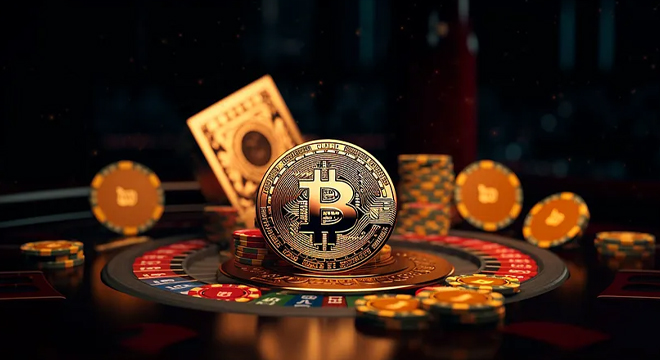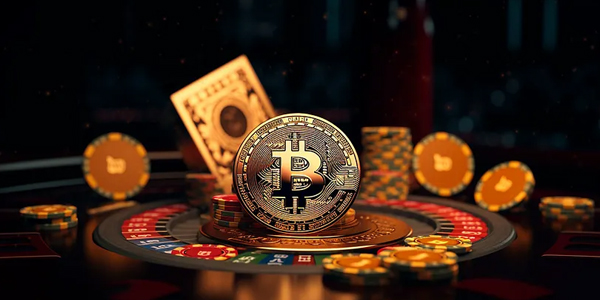
Since the first cryptocurrency was launched in 2009, blockchain technology has become mainstream. From financial institutions to gaming platforms, blockchain is a fast and safe alternative to traditional banking options. The popularity of blockchain technology has continued to increase due to the utility of cryptocurrencies like Bitcoin and Ethereum.
Aside from Blockchain technology’s banking features, other factors make this option stand out. In this piece, we will discuss the various roles of blockchain technology in online casinos. Every iGaming player will find this piece really helpful. Take a look.
What are the Roles of Blockchain in iGaming?
No ID or anonymous casinos have become popular in recent times because of blockchain technologies. With no verification requirements, a regular no CRUKS casino can admit new players and reward them with huge bonuses. Thanks to the blockchain network, transactions at such casinos are fast and seamless. The other roles of blockchain technology in online casinos include:
Enhanced Transparency
Blockchain technology is inherently built on decentralization. Unlike traditional databases that rely on a central authority, blockchain operates as a distributed network where multiple copies of the same data exist across numerous nodes. This means that no single entity has control over the entire system. This drastically reduces the risk of manipulation.
This decentralization plays a crucial role in building the trust of players. Every transaction—a bet placed, a win, or a withdrawal—is documented on the blockchain as an immutable record. This record is visible to all participants in the network, making it exceedingly difficult for any party to alter the data without detection.
Improved Security
Security is essential, especially in industries where players are required to provide sensitive data like financial records or other personal information. The likelihood of fraud, hacking, and data breaches is a constant concern for both online casino operators and their players. However, the inherent cryptographic properties of blockchain technology are the perfect remedy for these safety issues.
Data on blockchain cryptography is a hundred percent secure. The network transforms every data into an encrypted format that requires the correct key to decrypt. This means that every transaction on the network is adequately encrypted. Thus, even if a third party were to intercept the data, they would not be able to decode it.
Seamless Transactions
The efficiency and reliability of transactions are crucial for player satisfaction and trust. This is where blockchain technology, like smart contracts, comes into play. Smart contracts are self-executing agreements with the terms of the contract directly written into code.
Once deployed, smart contracts function automatically without human intervention. This automation is beneficial in iGaming because predefined conditions dictate the flow of transactions. It also reduces the potential for human error. This means players can rest assured that the games and transactions are fair.
Increased Player Control
Unlike traditional gaming environments, where control is often concentrated with a few operators, decentralized platforms distribute power among players. This shift allows players to have a say in their gaming experiences.
In a decentralized gaming ecosystem, players are not merely participants but stakeholders. Hence, they can influence decisions on game development and participate in governance through voting mechanisms. This fosters a sense of community and ownership among players.
Global Accessibility
Traditionally, players faced numerous barriers to accessing online gaming platforms. This was primarily due to the limitations imposed by conventional banking systems. High transaction costs, protracted processing periods, and location-based limitations were some of these obstacles. Blockchain technology provides a decentralized framework that facilitates smooth cross-border transactions, hence addressing these issues.
Players from numerous countries can now engage in online gaming without the need for middlemen or the hassles of international banking. A player in an area with stringent gambling laws, for example, can sign-up at a provably fair online casino. This way, they can circumvent regional banking institutions and use cryptocurrencies to make deposits and withdrawals. As a result, iGaming operators can now access untapped markets and geographies.
Final Thoughts
The blockchain technology has proven to be more than an alternative to traditional online casino payment methods. It has fundamentally changed how online casinos function and engage with customers. Increased player control, friendly terms, seamless transactions, enhanced security, transparency, and global accessibility are some of the ways that blockchain improves gaming.
Online gambling appears to have a bright future as long as users and operators continue to adopt
blockchain technology. From current trends, it’s apparent that incorporating blockchain
technology into iGaming will significantly boost player contentment. Additionally, it will open
the door to a lively and all-inclusive gaming community.
